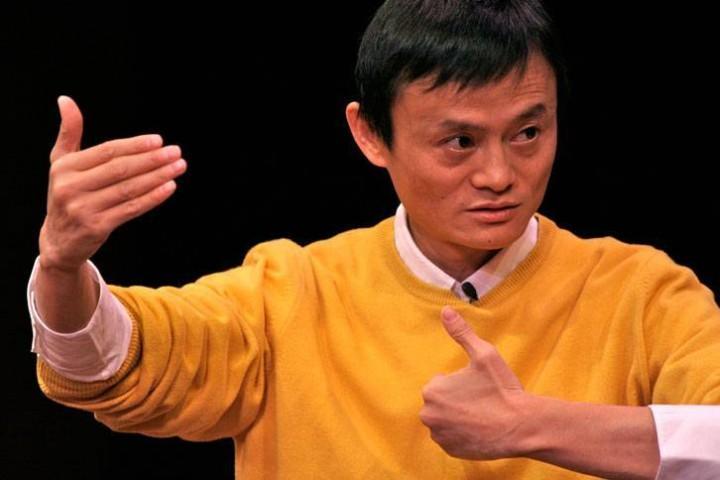Jack Ma predicts the future of logistics
There’s no denying that over the past ten years, China’s ecommerce market has exploded. Heck, ten years ago, two of China’s biggest ecommerce platforms – Tmall and JD – didn’t even exist, and Taobao was nothing close to the giant sales behemoth that it is today. But at the Global Smart Logistics Summit on Monday, Alibaba founder Jack Ma said that the real advances in China have been in logistics, not ecommerce.
“You can talk about the miracle of ecommerce in China or in the world,” he said, “but the logistics industry is where China’s real great miracle has been over the past decade.”
“I just saw a delivery company that helped a client deliver a house. There is someone who sent a lamppost (via a logistics company). I found that in China there are over 600 districts and counties with same-day or next-day delivery options. Across the world, there are very few countries that could go from [practically nothing] to being able to deliver anything anywhere in just ten years.”

And Ma is right – China’s logistics industry has made massive strides over the past ten years. In 2012, it surpassed the US as the largest logistics market on earth – no small feat considering how much longer the US market has had to develop. And the express sector – the part of the logistics industry that delivers packages like ecommerce orders – has grown with extreme speed. Business volume growth in the sector has averaged over 50 percent each year since 2011, according to a Deloitte report. China now has largest express delivery industry in the world.
“The past ten years of express delivery development has shown off the power of startups, of people, and of innovation,” Ma said. “Going forward, we need to place more emphasis on the power of technology and data, the power of integration, and the power of sharing.”
He also said that forward-thinking logistics companies need to be looking ahead and considering logistics problems of the future, like how to deliver to space stations, the moon, or even other planets. But one of the first items on the agenda, Ma says, should be eliminating warehouses: figuring out a way to get products directly from the factory to the consumer without intermediary steps.
He also shared his thoughts on delivery drones: “As for unmanned drones, I don’t think there’s any problem with thinking about them, but we’ve got to be rational. I think more time is needed before they’ll be viable. However, I do think that we definitely need to achieve inside-the-warehouse drones, and that’s something we need to develop quickly.”
“You can talk about the miracle of ecommerce in China or in the world,” he said, “but the logistics industry is where China’s real great miracle has been over the past decade.”
“I just saw a delivery company that helped a client deliver a house. There is someone who sent a lamppost (via a logistics company). I found that in China there are over 600 districts and counties with same-day or next-day delivery options. Across the world, there are very few countries that could go from [practically nothing] to being able to deliver anything anywhere in just ten years.”

Jack Ma is the founder and chairman of Alibaba. Photo credit: Asia Society.
Companies need to be considering logistics problems of the future, like delivering to space stations.“You are the greatest heroes in my heart,” Ma said of to the logistics company employees at the Summit.
And Ma is right – China’s logistics industry has made massive strides over the past ten years. In 2012, it surpassed the US as the largest logistics market on earth – no small feat considering how much longer the US market has had to develop. And the express sector – the part of the logistics industry that delivers packages like ecommerce orders – has grown with extreme speed. Business volume growth in the sector has averaged over 50 percent each year since 2011, according to a Deloitte report. China now has largest express delivery industry in the world.
The future of logistics
Jack Ma isn’t an outsider in China’s logistics business, of course. He was also the mastermind behind Alibaba logistics spinoff Cainiao, so he’s watched the development of this industry from close range, and he has a few thoughts about where it’s headed.“The past ten years of express delivery development has shown off the power of startups, of people, and of innovation,” Ma said. “Going forward, we need to place more emphasis on the power of technology and data, the power of integration, and the power of sharing.”
He also said that forward-thinking logistics companies need to be looking ahead and considering logistics problems of the future, like how to deliver to space stations, the moon, or even other planets. But one of the first items on the agenda, Ma says, should be eliminating warehouses: figuring out a way to get products directly from the factory to the consumer without intermediary steps.
He also shared his thoughts on delivery drones: “As for unmanned drones, I don’t think there’s any problem with thinking about them, but we’ve got to be rational. I think more time is needed before they’ll be viable. However, I do think that we definitely need to achieve inside-the-warehouse drones, and that’s something we need to develop quickly.”

No comments:
Post a Comment